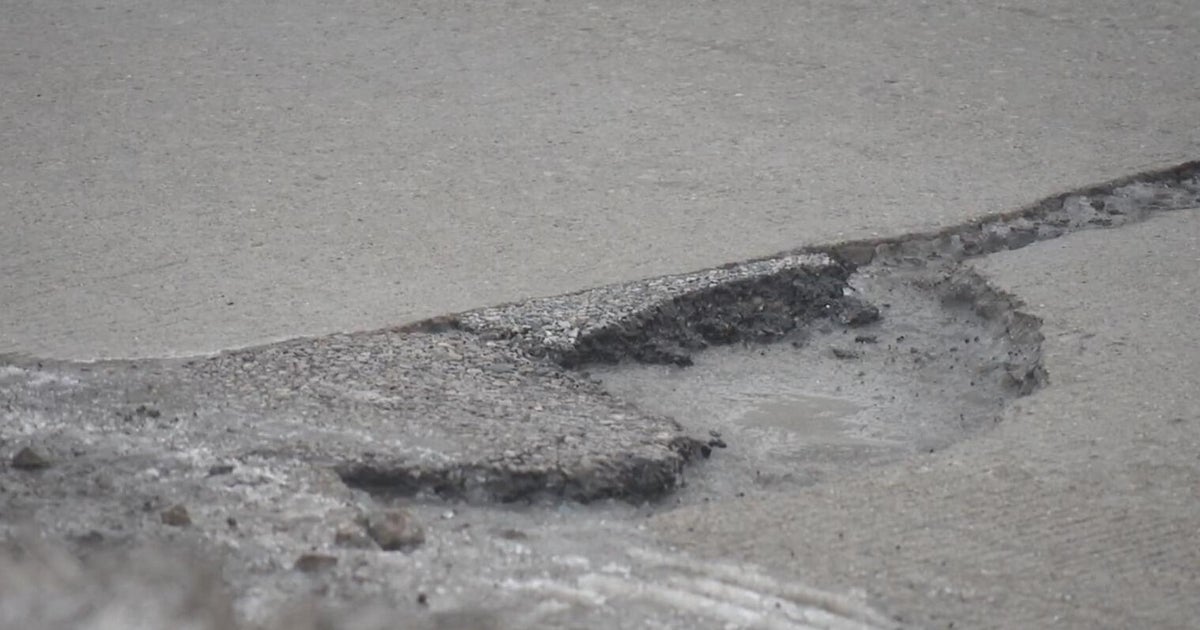GOP, Dems face potholes even where they agree
With experts predicting that a divided Congress will cause legislative gridlock in Washington, some are holding out hope that Democrats and Republicans can at least agree to patch up the nation's crumbling infrastructure. Don't bet on it.
Although both parties expressed support for the idea leading up to Tuesday's elections, the sheer cost of a major effort to upgrade the nation's roads, bridges, water systems and other structures is likely to thwart such a plan. One major obstacle: Who will pay for a federal project expected to cost more than $1 trillion, especially as the U.S. deficit swells to accommodate Republican-led tax cuts.
"In this environment, Congress cannot garner the requisite votes to pass an infrastructure package unless it is largely (if not fully) offset by revenue raisers," analysts at Height Capital wrote in a report.
Other analysts note that lawmakers failed to move ahead on an infrastructure bill even when Republicans controlled both chambers of Congress. President Donald Trump's plan for $1.5 trillion in infrastructure spending this year fizzled this spring. It called for $200 billion in federal spending, with private industry and states paying for the rest. Mr. Trump in October also signed into law a $6.1 billion water infrastructure bill to fund projects outlined by the Army Corps of Engineers.
Room for consensus?
House Minority Leader Nancy Pelosi, who many expect to reclaim her previous position as Speaker next year, said in recent interviews that infrastructure is a priority for the Democrats. Echoing that sentiment, Senate Majority leader Mitch McConnell told reporters on Wednesday that infrastructure will be among the chamber's priorities in 2019.
Where the sides disagree is how to fund such initiatives. Mr. Trump floated a gas tax earlier this year as one way to pay, an approach that critics say would hurt average Americans. By contrast, Democrats have broached ideas such as modestly raising taxes on high-income households and large corporations.
Michelle Meyer, chief economist at Bank of America Merrill Lynch, points out that a 1 percentage point increase in the corporate tax rate would generate about $100 billion in revenue over a decade. But "until there is consensus on the source of funding, we are unlikely to see additional fiscal stimulus," she said in a note.
"Woefully inadequate"
There's a reason both parties are talking about fixing infrastructure. Last year, the American Society of Civil Engineers graded infrastructure in the U.S. a D+, saying investment is "woefully inadequate." They also called on elected leaders to fulfill political promises to make repairs or suffer economic decline.
Some sources of capital aren't waiting for comity on Capitol Hill. Private equity firms are raising their own funds to invest in potential infrastructure projects, according to a recent Bloomberg report. In the third quarter alone, infrastructure funds raised almost $37 billion, a record, Bloomberg said in citing data provider Prequin.
States are also eager to bring their transportation and other facilities up to speed. The issue showed up in campaigns for governor across the country, a Brookings Institution report found last month. Of 64 gubernatorial candidates running for office, 41 offered detailed language on infrastructure plans, 18 released actionable plans, and 10 laid out cost estimates.
Height Capital pegs the chance of a bipartisan infrastructure package at 35 percent. Others are similarly skeptical.
"A divided Congress is unlikely to enact a major infrastructure program," Jan Hatzius, chief economist for Goldman Sachs, said flatly in a note on Wednesday. "While President Trump and congressional Democrats have both supported infrastructure programs, the details differ substantially and, more importantly, Democrats might not be motivated to reach an agreement with the White House prior to the 2020 presidential election."



